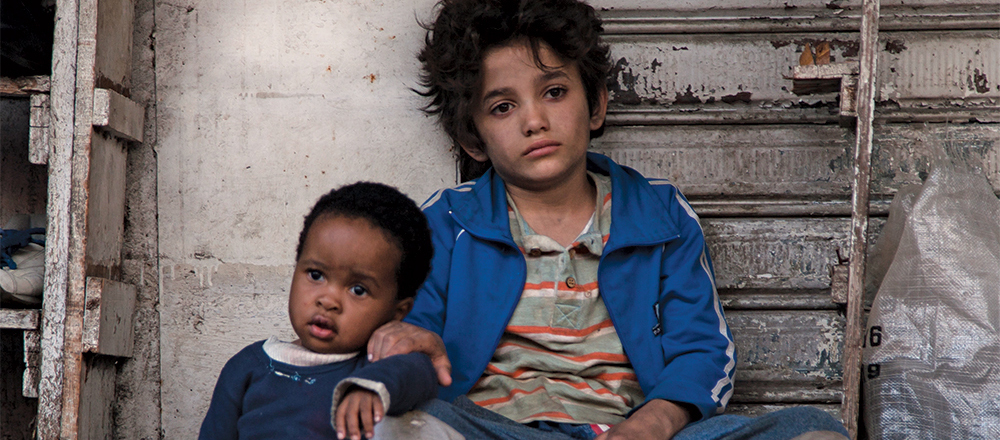Advance preview screenings at the Cameo Picturehouse on Fri 1 and Sun 3 Feb 2019
Originally the name of a small fishing town on the Sea of Galilee which was cursed by Jesus in the New Testament, Capernaum has since become a byword for chaos. That sentiment is certainly captured by Nadine Labaki’s film about a 12-year-old Lebanese street urchin named Zain who runs away from home and, forced by circumstance more than choice, turns to a life of crime to stay alive that ultimately lands him in a juvenile detention centre.
At the film’s outset, we’re introduced to Zain as he arrives at a courtroom. Apart from the incongruous image of a preadolescent in handcuffs, something else is clearly amiss; despite his obvious incarceration, Zain is the plaintiff here, not the defendant. That role is reserved for his parents, whom Zain is suing for, in his words, “giving me life”. It’s not so much the act that he wishes to condemn them for, but rather their complete unpreparedness for and ambiguity about its consequences.
Although Zain’s parents are undoubtedly to blame for their neglect in the boy’s upbringing and their subsequent unwillingness to change their way of life, the situation in which they find themselves is of course not all their own doing. The courtroom scene where Zain’s mother berates his lawyer for judging them without any proper understanding of the hardships they face is a telling one, with its impact enhanced by the fact that Labaki herself is cast in the role of sheepish attorney.
The court case itself is a slightly-clumsy and only half-believable framing device which allows Labaki to relate the chain of events which led to this impasse. While the technique might seem a little contrived and unrealistic, it’s about the only thing in the film which is. The abject poverty and squalor of Zain’s home situation, compounded by the indifference of society at large, is painted with vivid brushstrokes, setting us up for a gruelling watch defined by heart-in-the-mouth moments and grinding hopelessness.
As events progress and Zain flies the family coop in pursuit of a better life for himself, it soon becomes apparent that the search may be a fruitless one. Though he does find a sliver of affection in the form of illegal Ethiopian refugee Tigest and her infant son Yonas, it’s not long before disaster strikes once again and the odds mount up against Zain. Still, he refuses to be cowed in the face of incredible adversity and demonstrates precocious resourcefulness, whether that be in rigging up a mirror to watch his neighbour’s television or trafficking drugs for milk money.
Because of Zain’s resilience – brilliantly portrayed by non-professional actor Zain al Rafeea – the film does not buckle under the weight of its own gloom. It’s also further buoyed by flashes of humour, such as in the character of an elderly superhero impersonator and in Zain’s own flair for profanity, and Labaki mercifully leaves us with a modicum of optimism at its conclusion, even if the ends are tied up a little loosely. Perhaps slightly long, slightly convoluted and more than slightly chaotic, Capernaum is nonetheless an absorbing spotlight on societal issues which refuses to offer simplistic answers to a set of sprawling, deep-set and complicated problems.
